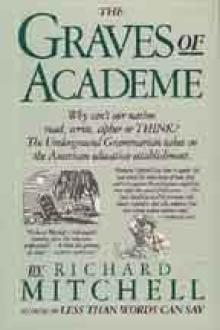The Queen of the Air, John Ruskin [classic novels for teens .TXT] 📗

- Author: John Ruskin
Book online «The Queen of the Air, John Ruskin [classic novels for teens .TXT] 📗». Author John Ruskin
* Not a scientific, but a very practical and expressive distinction.
I will give you instances of her agency in all these functions.
First, and chiefly, she is air as the spirit of life, giving vitality to the blood. Her psychic relation to the vital force in matter lies deeper, and we will examine it afterwards; but a great number of the most interesting passages in Homer regard her as flying over the earth in local and transitory strength, simply and merely the goddess of fresh air.It is curious that the British city which has somewhat saucily styled itself the Modern Athens is indeed more under her especial tutelage and favor in this respect than perhaps any other town in the island. Athena is first simply what in the Modern Athens you practically find her, the breeze of the mountain and the sea; and wherever she comes, there is purification, and health, and power. The sea-beach round this isle of ours is the frieze of our Parthenon; every wave that breaks on it thunders with Athena's voice; nay, wherever you throw your window wide open in the morning, you let in Athena, as wisdom and fresh air at the same instant; and whenever you draw a pure, long, full breath of right heaven, you take Athena into your heart, through your blood; and, with the blood, into the thoughts of your brain.
Now, this giving of strength by the air, observe, is mechanical as well as chemical. You cannot strike a good blow but with your chest full; and, in hand to hand fighting, it is not the muscle that fails first, it is the breath; the longest-breathed will, on the average, be the victor, --not the strongest. Note how Shakespeare always leans on this. Of Mortimer, in "changing hardiment with great Glendower":
"Three times they breathed, and three times did they drink, Upon agreement, of swift Severn's flood."
And again, Hotspur, sending challenge to Prince Harry:
"That none might draw short breath to-day But I and Harry Monmouth."
Again, of Hamlet, before he receives his wound:
"He's fat, and scant of breath."
Again, Orlando in the wrestling:
"Yes; I beseech your grace I am not yet well breathed."
Now, of all the people that ever lived, the Greeks knew best what breath meant, both in exercise and in battle, and therefore the queen of the air becomes to them at once the queen of bodily strength in war; not mere brutal muscular strength,--that belongs to Ares,--but the strength of young lives passed in pure air and swift exercise,--Camilla's virginal force, that "flies o'er the unbending corn, and skims along the main."
Now I will rapidly give you two or three instances of her direct agency in this function. First, when she wants to make Penelope bright and beautiful; and to do away with the signs of her waiting and her grief. "Then Athena thought of another thing; she laid her into a deep sleep, and loosed all her limbs, and made her taller, and made her smoother, and fatter, and whiter than sawn ivory; and breathed ambrosial brightness over her face; and so she left her and went up to heaven." Fresh air and sound sleep at night, young ladies! You see you may have Athena for lady's maid whenever you choose. Next, hark how she gives strength to Achilles when he is broken with fasting and grief. Jupiter pities him and says to her, "'Daughter mine, are you forsaking your own soldier, and don't you care for Achilles any more? See how hungry and weak he is,--go and feed him with ambrosia.' So he urged the eager Athena; and she leaped down out of heaven like a harpy falcon, shrill-voiced; and she poured nectar and ambrosia, full of delight, into the breast of Achilles, that his limbs might not fail with famine; then she returned to the solid dome of her strong father." And then comes the great passage about Achilles arming--for which we have no time. But here is again Athena giving strength to the whole Greek army. She came as a falcon to Achilles, straight at him, a sudden drift of breeze; but to the army she must come widely, she sweeps around them all. "As when Jupiter spreads the purple rainbow over heaven, portending battle or cold storm, so Athena, wrapping herself round with a purple cloud, stooped to the Greek soldiers, and raised up each of them." Note that purple, in Homer's use of it, nearly always means "fiery," "full of light." It is the light of the rainbow, not the color of it, which Homer means you to think of. But the most curious passage of all, and fullest of meaning, is when she gives strength to Menelaus, that he may stand unwearied against Hector. He prays to her: "And blue-eyed Athena was glad that he prayed to her, first; and she gave him strength in his shoulders, and in his limbs, an she gave him the courage"--of what animal, do you suppose? Had it been Neptune or Mars, they would have given him the courage of a bull, or a lion; but Athena gives him the courage of the most fearless in attack of all creatures, small or great, and very small it is, but wholly incapable of terror,--she gives him the courage of a fly. Now this simile of Homer's is one of the best instances I can give you of the way in which great writers seize truths unconsciously which are for all time. It is only recent science which has completely shown the perfectness of this minute symbol of the power of Athena; proving that the insect's flight and breath are co-ordinated; that its wings are actually forcing-pumps, of which the stroke compels the thoracic respiration; and that it thus breathes and flies simultaneously by the action of the same muscles, so that respiration is carried on most vigorously during flight, "while the air-vessels, supplied by many pairs of lungs instead of one, traverse the organs of flight in far greater numbers than the capillary blood-vessels of our own system, and give enormous and untiring muscular power, a rapidity of action measured by thousands of strokes in the minute, and an endurance, by miles and hours of flight."** Ormerod: "Natural History of Wasps."
Homer could not have known this; neither that the buzzing of the fly was produced, as in a wind instrument, by a constant current of air through the trachea. But he had seen, and, doubtless, meant us to remember, the marvellous strength and swiftness of the insect's flight (the glance of the swallow itself is clumsy and slow compared to the darting of common house-flies at play);





Comments (0)